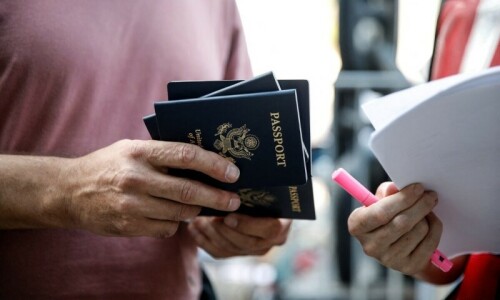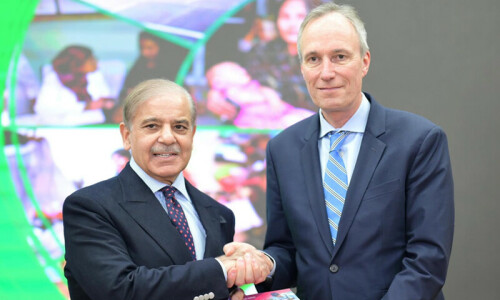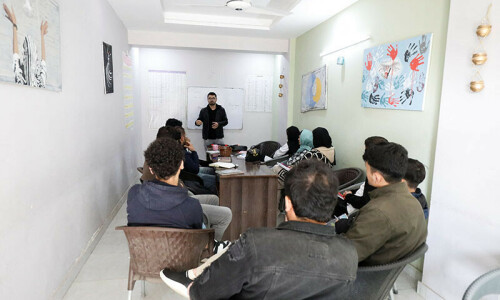LONDON, Feb 20: Western governments are contemplating to buy every year the entire poppy crop of Afghanistan or legalise the use of heroin because they are finding it increasingly difficult to curb the Afghan drugs trade which is said to be fuelling the war in the terror-torn country.
According to a report in the Times on Friday, when the US-led invasion toppled the Taliban government eight years ago, Afghanistan’s opium production was virtually zero because the clerics had largely eradicated poppy cultivation. Last year Afghanistan produced 7,700 tonnes of opium worth about $2.9 billion, accounting for 90 per cent of the world’s illegal supply.
The US alone spends $1 billion a year in Afghanistan on a counter-narcotics strategy that Richard Holbrooke, the US special envoy to the region, calls “the single most ineffective policy in the history of American foreign policy”. Britain, for its part, spent £2.5 billion last year on military operations against a Taliban insurgency inextricably linked to the drugs trade.
So wouldn’t it be cheaper and easier to purchase the entire crop? James Nathan, a former State Department official and now a professor at Auburn University in Alabama, believes so. “Purchasing the whole crop would take it away from the traffickers without cutting more than half the economy out of Afghanistan,” he wrote recently.
He estimated it would cost between $2 billion and $2.5billion a year; a fraction of the $200 billion Afghanistan has cost the US taxpayer so far. The opium would be stored in the US, and perhaps released for medical emergencies.
A less radical proposal comes from the International Council on Security and Development, a UK-based NGO, which wants Afghanistan to produce legal opiate medicine such as codeine and morphine. The ICSD proposes granting international licences to poppy farmers, placing Afghanistan alongside Turkey, India and Australia as a legal opium producer.
However, the plan to purchase the entire crop takes into account only the price of the opium, ignoring the enormous potential cost of running the operation year after year. It also assumes the corrupt Afghan government is capable of carrying out such an enormous logistical task.
Another risk is that taking most of the crop off the international market would drive up the price of illegal opium.
The legalisation proposal is criticised for overestimating demand for opiate medicines, and being too complex to have any short-term effect.

















































Dear visitor, the comments section is undergoing an overhaul and will return soon.